Olive trees are an inextricable part of Greek culture, tradition and mythology. The Ancient Greeks believed that olive branches represented abundance and peace. Athenians believed the olive tree to be a gift from the patron goddess of Athens, Athena. Olive branch garlands were worn by brides in Ancient Greece. A crown of olive branches was presented to honor remarkable Ancient Greeks of the day, including athletes at the Olympic Games. Today, the olive branch is an internationally recognized symbol of peace and friendship dating back to Greek mythology.
Olive oil is one of Greece’s main exports. Olives and olive oil are Crete’s number one export. We had heard that Crete produces some of the best olive oil in the world. We wanted to learn more about this important agricultural crop and how it is produced.
It seemed that most of the olive oil estates were closed to tourists during the winter low season that coincides with their harvest months between October and January. Luckily, we came across an olive oil producer called Biolea in the village of Astrikas that welcomed tourists even during this period.
We were warmly greeted by Chloe Dimitriadis, the sixth generation owner of the organic olive estate. Her father started the company Biolea, focused on producing high-quality, organic, artisanal olive oil, that she is now in charge of. Chloe was dressed in a thick wool cardigan, loose flowing pants and trainers. She looked exhausted, overworked, like she needed a vacation. The reason she looked so tired is because their harvest season literally ended a day ago.
Once Chloe started talking, the tiredness from her face seemed to disappear and was replaced by something else altogether. We’ve encountered this before – the sparkle in the eye, the conviction in the voice, the stretching of the heart. We’ve seen it with Erik in Kibera, Zacharia at Watamu Snake Farm and Dina in Alexandria. We know it when we see it. Passion.
I can’t remember exactly, but I think Chloe said Biolea produces about 20,000 liters of olive oil a year. All of the olives are single estate, meaning they come only from Chloe’s olive trees. Picking is all done by hand so the fruit can be harvested without bruising and only at the optimal time of ripeness. Once the fruit is picked, it is processed and turned into olive oil on the same day.
Chloe led us into her workshop where the olives are crushed with a stone mill and then cold pressed. As we stepped into the workshop, she told us to be careful because they hadn’t had a chance to clean properly yet and the floor was slippery with olive oil. A few minutes after she said this, DY slipped on the oil and slid across the shop floor in a dramatic fashion. He looked like someone in a cartoon slipping on a banana peel, unbelievable and exaggerated to a sane onlooker. Right away, he jumped up and announced, “I’m ok. Don’t worry. I’m ok.”
According to Chloe, the traditional way of producing olive oil is not very popular anymore because it is labor intensive and expensive. These days, olive oil producers might use centrifuge, heating or dilution methods to lower their costs, but this also compromises on quality. She told us exactly how the machines work and it was surprisingly easy to understand. Basically, there is a washing machine that sends the cleaned fruit up a steep belt to the stone mill. The stone mill crushes the olives, seeds and all, into a paste. The paste is pumped onto round trays stacked one on top of another with a layer of metal mesh in between each layer. The trays are pushed into the hydraulic press where the olive liquid is squeezed out. The liquid is put into large barrels and once settled, the “juice” settles at the bottom and the olive oil floats to the top. Once ready, the olive oil is bottled on the premises, labeled and packaged ready for sale.
In fact, the simplicity of the process is intentional. Chloe believes in keeping the production very simple and as traditional as possible, with the least processing in order to maintain the beneficial health properties and authentic flavors of the fruit itself.
Beside Chloe’s production line, there was another production line that looked completely different and much more complicated. Just this year, Biolea and another artisan olive oil producer, Pamako, began cooperating in the same production space with their production lines just beside one another. Pamako does not use a stone mill at all, rather it produces olive oil using innovative modern methods involving stainless steel machinery, milling and malaxing at low temperatures and use of and food-safe and inert gas called argon to maintain the freshness of the fruit.
The two line’s approach olive oil production from very different philosophies, but they are after the same thing – best-quality product, sustainable production methods and innovation. In fact, Chloe later showed us some pellets made of organic waste from the production process. They are burning this waste to heat their factory. In a few years, Chloe hopes to be zero-waste, using only renewable energy in a circular economy.
Chloe does a number of other things to stay “green”. To deal with pests and insects, she does not use any pesticides, they spray their trees with dust. To avoid wasting water, she does not use modern irrigation. To prevent soil erosion, she does not plow the land. Biolea is ISO 14001 certified which means they “monitor all aspects of production and make specific plans to improve their impact on the environment every year.”
After our factory tour, Chloe guided us to a mezzanine area with a view of the factory floor from above. She laid out some bread and olive oil and bread for tasting. Biolea’s olive oil tastes very different from other olive oil we have tasted before, even ones labeled EVOO (extra virgin olive oil). The flavor of the olive oil was so fresh – pronounced and robust. Chloe told us that in the same way that wines are enjoyed with attention paid to subtle flavors produced by the terroir, so too can olive oil be enjoyed.
I have nothing but deep respect for Chloe. She is running her company in her own vision, striving to build something that is rooted in tradition and history yet evolving with modern times. It’s clear that Biolea is not only Chloe’s job, it is her culture, her passion, her life.
Chloe’s husband is a chef and during the busy tourist season, he runs a restaurant on the estate showcasing local ingredients and of course, olive oil. Unfortunately, the restaurant wasn’t open. We bought a bottle of olive oil and a few bars of their handmade, cold-processed olive soap.
We were so lucky that instead of taking a few days of rest at the end of the harvest season, Chloe welcomed us on this fascinating and inspiring tour and shared her story with us. As we were leaving, we spotted a child’s bicycle and some outdoor toys at the side of the entrance. I don’t know for sure, but I imagine these belong to Chloe’s children who probably spend a lot of time at Biolea. For them too, the Astrika Estate is in their blood and will one day become a part of their story.
Author
-
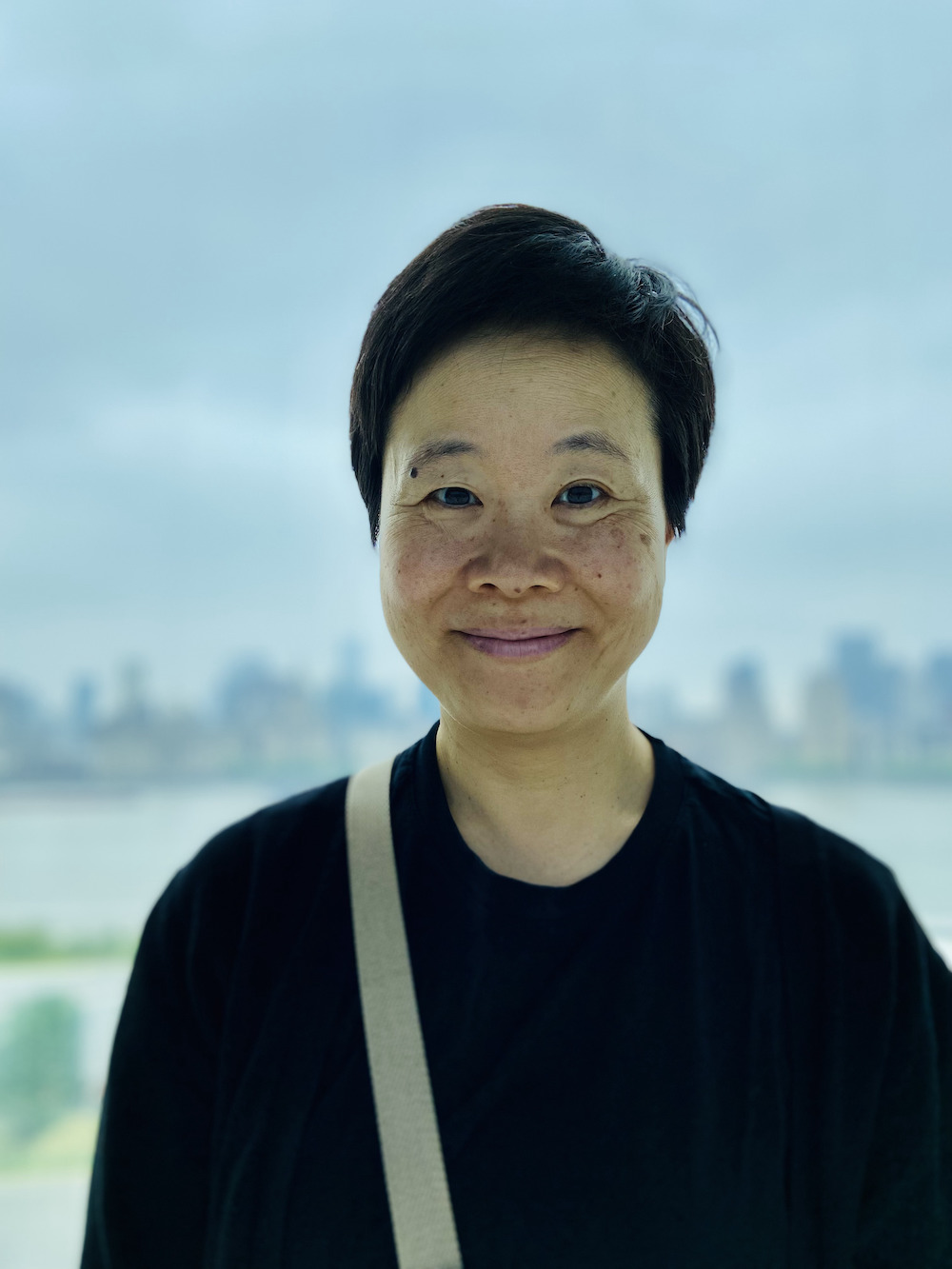
Song is the mother of four children. She and her family have stepped away from it all and in September 2023, began traveling the world while homeschooling. Song is an ABC (American born Chinese) and has an undergraduate degree from Cornell and an MBA from Harvard. She is an entrepreneur and an educator. Her hobbies include learning, traveling, reading, cooking and baking, and being with children.

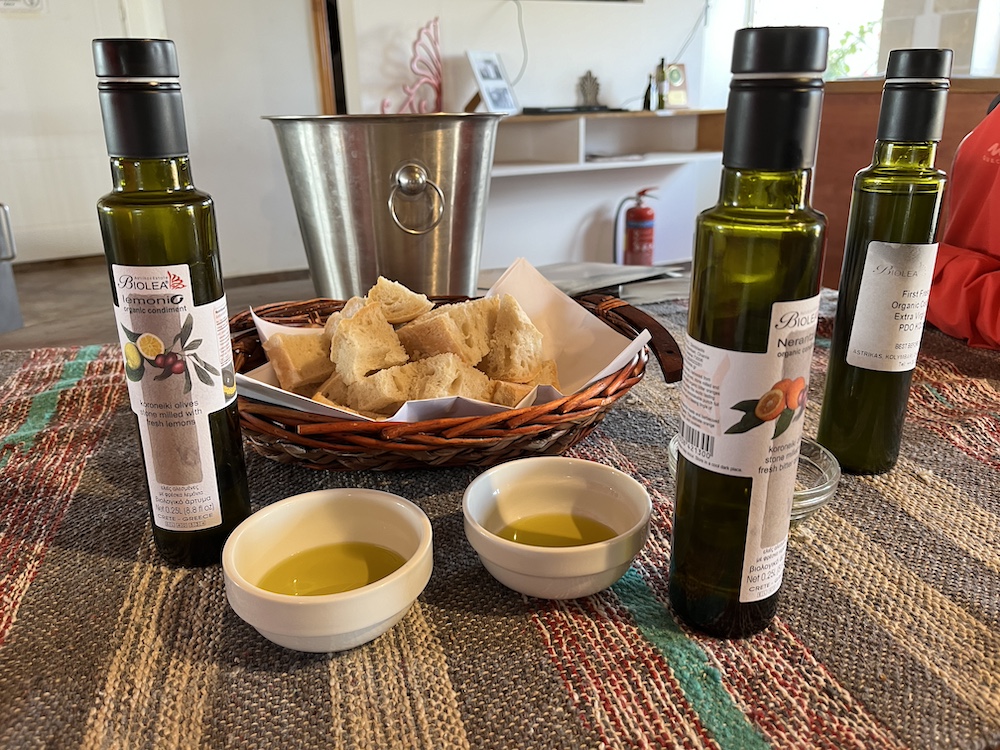
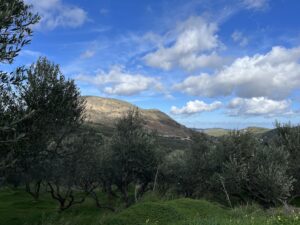
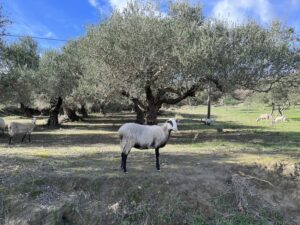
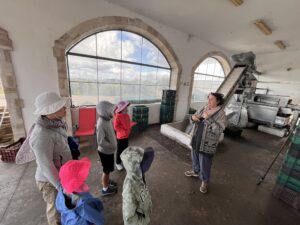
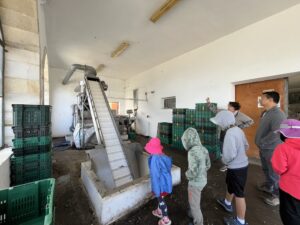
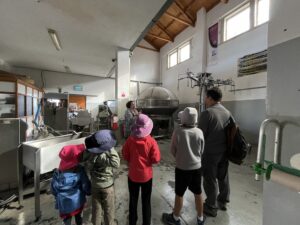
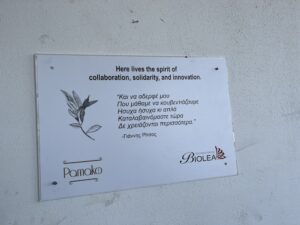
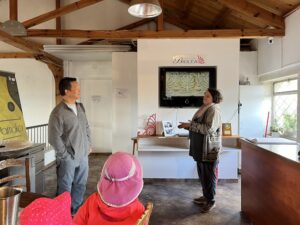
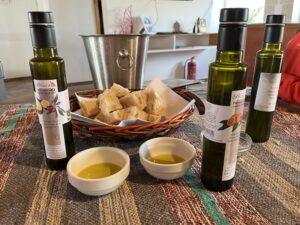
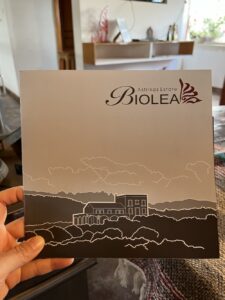
So nice ! Olive oil is a bit magic.
I love olive oil!🤤😍